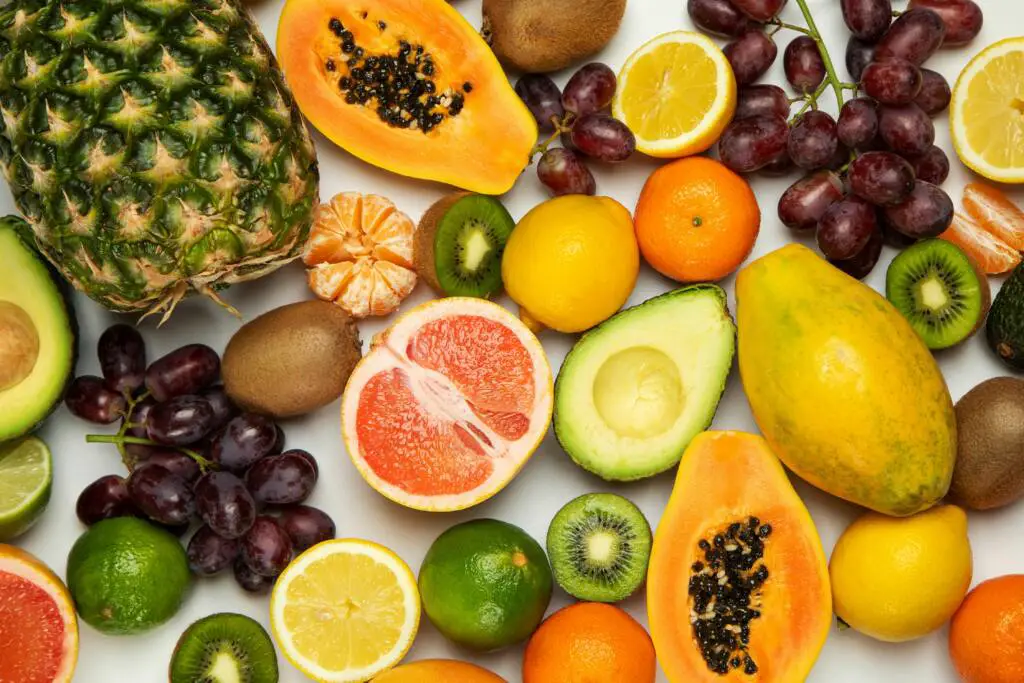How Your Diet Influences Blood Flow

The food we eat plays a significant role in our overall health, including the circulation of blood throughout our bodies. Poor diet choices can lead to restricted blood flow, which can have serious implications for our well-being. When we consume foods high in saturated fats, cholesterol, and sugar, our arteries can become clogged, making it difficult for blood to flow freely. On the other hand, a diet rich in fruits, vegetables, whole grains, and lean proteins can promote healthy blood flow by keeping our arteries clear and flexible. By understanding how our diet influences blood flow, we can make informed choices to support our cardiovascular health and overall well-being. In this article, we will explore the connection between diet and blood flow and provide tips for improving circulation through healthier eating habits.
What is the Circulatory System?
The circulatory system is a complex network of blood vessels, organs, and cells that work together to transport nutrients, oxygen, and hormones throughout the body. It is responsible for delivering oxygen-rich blood to the tissues and organs, removing waste products, and maintaining overall health and well-being.
Key Takeaways:
The circulatory system plays a vital role in sustaining life by ensuring the proper functioning of all bodily systems.
It consists of the heart, blood vessels, and blood.
The circulatory system transports oxygen, nutrients, and hormones while removing waste products.
The Importance of a Healthy Circulatory System
Why is a healthy circulatory system important?
A healthy circulatory system is essential for overall well-being. It supports the proper functioning of each organ and system in the body. Without adequate blood flow, organs and tissues may not receive enough oxygen and nutrients, resulting in fatigue, poor immune function, and an increased risk of various health problems.
How does the circulatory system work?
The circulatory system works by the continuous pumping of the heart, which propels oxygen-rich blood out to the body and returns oxygen-depleted blood back to the heart and lungs for oxygenation. Blood vessels, such as arteries, veins, and capillaries, transport the blood throughout the body.
The role of blood flow in overall health
Good blood flow is crucial for overall health as it ensures the delivery of oxygen and nutrients to all parts of the body. It also helps remove waste products and toxins from the body. Poor blood flow can lead to serious health conditions, including cardiovascular disease, stroke, and even organ damage.
The link between diet and blood flow
Diet plays a significant role in maintaining a healthy circulatory system and promoting optimal blood flow. The foods we eat have a direct impact on blood pressure, cholesterol levels, and blood vessel health. By making smart dietary choices, we can support healthy blood flow and reduce the risk of cardiovascular issues.
Understanding the Impact of Diet on Blood Flow
How does diet affect blood flow?
The foods we consume can either promote or hinder blood flow. Certain nutrients, such as antioxidants and nitric oxide, have vasodilatory effects, meaning they help relax and widen blood vessels, enhancing blood flow. On the other hand, a diet high in saturated fats, sodium, and processed foods can lead to vasoconstriction, narrowing the blood vessels and impeding blood flow.
Foods that promote healthy blood flow
Including certain foods in your diet can help improve blood flow.
Some examples include:
Leafy greens: These vegetables are rich in nitrates, which convert into nitric oxide in the body, promoting vasodilation and enhancing blood flow.
Berries: Berries are packed with antioxidants that protect blood vessels and promote their health.
Fatty fish: Fish like salmon, mackerel, and sardines contain omega-3 fatty acids, which reduce inflammation and improve blood flow.
Citrus fruits: Citrus fruits are high in vitamin C, which helps strengthen blood vessels and promotes healthy blood flow.
Foods that hinder blood flow
Certain foods can have a negative impact on blood flow and should be consumed in moderation.
These include:
Processed foods: Highly processed foods often contain high levels of sodium, unhealthy fats, and added sugars, which can lead to vasoconstriction and reduced blood flow.
Fried foods: Fried foods are often high in unhealthy fats and can contribute to the build-up of plaque in the arteries, restricting blood flow.
Sugary beverages: Drinks high in sugar, such as soda and fruit juices, can contribute to obesity, insulin resistance, and poor blood flow.
Nutrients that Support Blood Flow
Essential nutrients for a healthy circulatory system
Certain nutrients play a crucial role in supporting a healthy circulatory system and promoting optimal blood flow.
These include:
Nitric oxide: Nitric oxide helps relax and dilate blood vessels, improving blood flow. It can be increased by consuming foods rich in nitrates, such as leafy greens, beets, and citrus fruits.
Omega-3 fatty acids: Omega-3 fatty acids reduce inflammation and help improve blood flow. They can be found in fatty fish, walnuts, chia seeds, and flaxseeds.
Antioxidants: Antioxidants protect blood vessels from damage and promote their health. Foods rich in antioxidants include berries, dark chocolate, and green tea.
Vitamin E: Vitamin E is important for maintaining healthy blood vessels. It can be found in nuts, seeds, and vegetable oils.
Foods rich in these nutrients
To support blood flow, incorporate the following foods into your diet:
Spinach and kale (for nitrates)
Salmon and trout (for omega-3 fatty acids)
Blueberries and strawberries (for antioxidants)
Almonds and sunflower seeds (for vitamin E)
Lifestyle Habits for Optimizing Blood Flow
Exercise and its impact on blood flow
Regular exercise is one of the most effective ways to improve blood flow and promote a healthy circulatory system. Physical activity helps strengthen the heart, improve blood vessel health, and enhance the efficiency of the cardiovascular system. Aim for at least 30 minutes of moderate-intensity exercise most days of the week.
Stress management and blood flow
Chronic stress can hurt blood flow, as it can lead to high blood pressure and other cardiovascular issues. Engaging in stress-reducing practices such as meditation, deep breathing exercises, and hobbies can help promote healthy blood flow and overall well-being.
The role of adequate hydration
Proper hydration is essential for maintaining optimal blood flow. When you are dehydrated, the blood becomes thicker, making it more difficult for it to flow through blood vessels. Aim to drink at least 8 glasses of water per day and hydrate even more during exercise or in hot weather.
How to Improve Your Diet for Better Blood Flow

1. Increase intake of foods that promote blood flow
To enhance blood flow, focus on incorporating more of the following foods into your diet:
Examples of blood flow-enhancing foods:
Beetroot
Watermelon
Oranges
Dark chocolate
2. Reduce consumption of foods that hinder blood flow
To improve blood flow, it is important to limit the intake of foods that can impede circulation:
Foods to avoid or limit for optimal blood flow:
Processed meats
High-sodium snacks
Sugary drinks
Deep-fried foods
3. Incorporate key nutrients into your diet
To support blood flow, ensure you are getting sufficient amounts of the following nutrients through your diet:
Specific nutrients to focus on for blood flow support:
Nitrates
Omega-3 fatty acids
Antioxidants
Vitamin E
Developing a Circulatory System-Friendly Eating Plan
1. Meal ideas and recipes for improved blood flow
Breakfast: Spinach and mushroom omelet with a side of mixed berries
Lunch: Grilled salmon salad with mixed greens and avocado
Dinner: Baked chicken breast with roasted sweet potatoes and steamed broccoli
2. Snack options to boost circulation
Almonds or walnuts with a piece of dark chocolate
Greek yogurt with blueberries and a drizzle of honey
Carrot sticks with hummus
Lifestyle Changes for Optimal Blood Flow
1. Regular physical activity for a stronger circulatory system
Engaging in regular physical activity, such as brisk walking, running, or cycling, can significantly improve blood flow and strengthen the circulatory system.
2. Stress reduction techniques and their impact on blood flow
Incorporating stress reduction techniques into your daily routine, such as mindfulness meditation, yoga, or deep breathing exercises, can help promote healthy blood flow and overall well-being.
Additional Strategies for Ensuring Healthy Blood Flow
1. Supplements and their role in supporting blood flow
Certain supplements, such as nitric oxide boosters or omega-3 fatty acid supplements, can be beneficial in supporting blood flow. However, it’s important to consult with a healthcare professional before starting any new supplementation regimen.
2. Tracking your progress and making adjustments
Monitor your blood pressure, cholesterol levels, and overall health to track improvements in blood flow. If necessary, make adjustments to your diet and lifestyle habits to optimize blood flow and maintain a healthy circulatory system.
Conclusion: Nourishing Your Circulatory System for Optimal Blood Flow
Maintaining a healthy circulatory system is crucial for overall health and well-being. By understanding the impact of diet on blood flow and making smart dietary choices, you can optimize blood flow and reduce the risk of cardiovascular issues. Additionally, adopting lifestyle habits such as regular exercise, stress management, and proper hydration can further support a healthy circulatory system. Remember, nourishing your body with nutrient-rich foods and making thoughtful lifestyle choices is the key to keeping your circulatory system in harmony and ensuring optimal blood flow.
https://7thavewellnessblog.com/?p=4551
https://www.ncbi.nlm.nih.gov/
FAQs
Q: How does diet affect blood circulation?
A: A healthy diet plays a crucial role in maintaining good circulation. Certain foods can help improve blood flow and circulation, while others can cause poor circulation. By making mindful food choices, you can lower your risk of heart disease and improve your overall cardiovascular health.
Q: What are some foods to help increase blood circulation?
A: Foods like those found in the Mediterranean diet, which includes fruits, vegetables, whole grains, and lean proteins, can help improve blood circulation. These foods may help improve blood flow and reduce the risk of coronary artery disease.
Q: Can diet help improve poor circulation?
A: Yes, a healthy diet can help improve poor circulation. By incorporating foods that support good circulation, such as those rich in antioxidants and omega-3 fatty acids, you may experience enhanced blood flow and lower your risk of developing circulation-related issues.
Q: How do certain foods impact the risk of heart disease?
A: Certain foods can lower blood pressure, reduce the risk of blood clots, and prevent blood vessel damage, all of which contribute to a lower risk of heart disease. By including these heart-healthy foods in your diet, you can help improve your circulation and overall heart health.
Q: What are some foods to avoid to maintain good circulation?
A: To maintain good circulation, it’s advisable to avoid foods high in saturated fats, added sugars, and sodium. These foods can contribute to increased blood pressure, reduced blood flow, and a higher risk of developing cardiovascular issues.







